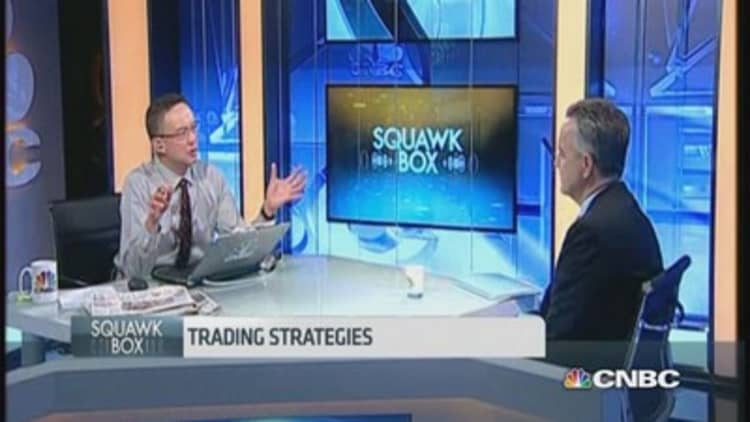
South Korean shares started 2014 as analysts' darling, but after losing nearly 5 percent year-to-date, they are fast falling out of favor.
The dismal performance this year follows a 0.6 percent loss in 2013. By comparison, Japan's benchmark Nikkei 225 added 7.3 percent, breaching the 17,000 level for the first time since 2011, as the Bank of Japan shocked markets in late October by increasing its already massive asset-buying program. China's Shanghai Composite index brushed off an economic slowdown to pile on 53 percent this year, while India's S&P BSE Sensex index has rallied nearly 30 percent since the start of 2014, lifted by Prime Minister Narendra Modi's pledge to revive the economy.
One reason for South Korea's underperformance is the steep drop in earnings by domestic firms, which have been hurt by a weak Japanese yen making won-denominated exports less competitive and uncertainties in the global economy, analysts say.
"You have a combination of a relatively strong won and cost issues [hence] we're seeing automakers and the electronics sector consistently missed earnings throughout the year," Adrian Mowat, chief Asian and emerging market equity strategist at J.P. Morgan, told CNBC Asia's "Squawk Box" last week.
Samsung Electronics, which has the biggest weighting in the benchmark Kospi, has given up 4.9 percent this year as the tech giant appears set for its first annual earnings drop since 2011 amid cut-throat competition in the smartphone market. The next biggest stock on the index, Hyundai Motor, has tumbled 27 percent since the beginning of the year.
The government hasn't been complacent about the economic headwinds the country faces, with Finance Minister Choi Kyung-hwan rolling out a $40 billion stimulus package in July with expanded fiscal spending, corporate tax breaks and a relaxation of mortgage lending rules.
"The problem with government efforts is that it only helps certain sectors in the Kospi. It helps the banks in the medium term and some domestic retailers, but they tend to be mid-caps like Lotte Himart," said J.P. Morgan's Mowat.
All bets are off
J.P. Morgan, which was overweight South Korean shares at the start of 2014, downgraded its rating to underweight last month. Apart from worries about a stronger won, the recent collapse in the oil markets contributed to downward pressure on the Kospi.
"We are nervous about the auto industry's competitiveness, considering the weakening of the euro and yen, as well slowing auto sales in China," Mowat said. "There are also worries about engineering construction companies, which are very exposed to oil fluctuations."
Standard Chartered also cut its rating, although it went to neutral, in a report issued last week, citing risks from rising interest rates in the U.S. and the lack of a strong pickup in earnings growth next year.
Read MoreWhy China-South Korea trade pact is a win-win
Meanwhile, HSBC expects lukewarm growth in the country's exports to limit advances of the South Korean bourse next year. Out of the 770 companies listed on the Kospi, 74 percent are export-oriented firms.
"The U.S. was a bright spot in the latest export data, [but] Europe continued to disappoint while exports to Japan decreased due to yen depreciation. Emerging market exports, including China, increased, but only marginally," HSBC's analysts wrote in a note. "Taking all this into account, exports in 2015 will only show gradual improvement, which means corporate earnings will find it difficult to escape the low growth environment."
Not all is lost
However, the government's mulling of new tax breaks to encourage businesses to increase wages and dividends may provide room for an upside surprise in 2015, according to Ryan Huang, market strategist at IG.
"The new rules may spur companies to divert the cash to investments, dividends or share buybacks. Samsung has reportedly made plans to boost its dividend [payout] to 50 percent next year and we may see more following suit," Singapore-based Huang told CNBC. "This could attract more investors and funds into South Korean equities and lift the Kospi."

